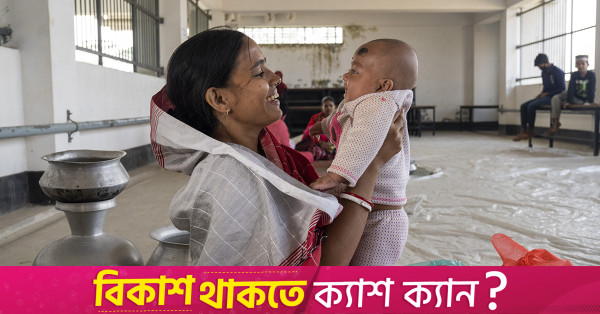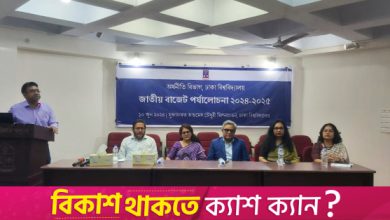Mothers suffer most from malnutrition: Food minister


“There was a time when the country’s seven crore people faced food shortages. Thanks to the tireless efforts of the Prime Minister, there is now no food shortage despite a population of 16.5 crore,” he also said
A mother with her child. Photo: WHO
“>
A mother with her child. Photo: WHO
Food Minister Sadhan Chandra Majumder emphasised the government’s commitment to ensuring nutritional food for mothers who suffer the most from malnutrition.
“Mothers in the country suffer the most from malnutrition. If a mother is malnourished, it affects her children too. We have enacted laws to ensure the nutritional quality of rice and are working to ensure six types of nutrients in rice,” he said at an event titled “Celebrating the Success of JANO: Commemorating a Five and a Half Year Journey” at a city hotel today (26 June).
“Besides, we have included lessons on safe and nutritious food in the curriculum at the secondary and primary levels to achieve global standards in nutrition,” the minister said.
“There was a time when the country’s seven crore people faced food shortages. Thanks to the tireless efforts of the Prime Minister, there is now no food shortage despite a population of 16.5 crore,” he added.
The Joint Action for Nutrition Outcomes (JANO) project, led by CARE Bangladesh, arranged the discussion.
Asaduzzaman Noor MP said “It is possible to eat nutritious food even with limited means. We need to raise more awareness about consuming nutritious food.”
Consultant Jock Baker from Inspira Consulting shared insights on the project’s impact, noting a 38.7% increase in the participation of women and adolescent girls in formal decision-making processes.
“Adolescents have shown significant improvement in understanding and applying important concepts about nutrition, health, and hygiene,” he stated.
Md Mizanur Rahman, senior team leader of JANO, said “We have seen significant progress in dietary diversity among women, children, and adolescents.” “Furthermore, 483,859 people have benefited from community healthcare through our community platform,” he said.
The project, which ran from September 2018 to June 2024, made remarkable strides in addressing malnutrition among children under five, pregnant and lactating women, and adolescent girls in the Rangpur and Nilphamari districts.
The JANO project, in partnership with the European Union, the Australian Development Corporation, and Plan International, showcased its achievements, challenges, best practices, and future directions in improving nutrition governance in Bangladesh.




